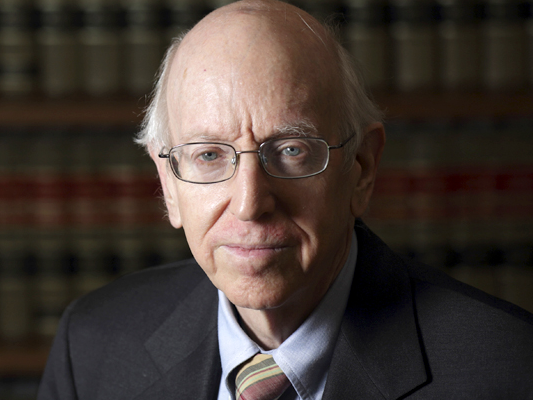The left is celebrating the recent decision against Wisconsin’s voter ID laws by Seventh Circuit Judge Richard A. Posner, the “conservative” jurist and author, as if it represents a turning point in the debate. It certainly might–though not on the merits, but rather because Posner has, perhaps under pressure, embraced politics over law as the basis for deciding the issue. A close reading of Posner’s opinion reveals how absurd his reasoning really is.
Posner acknowledges that an Indiana law requiring photo ID passed constitutional muster at the Supreme Court, but says that the Wisconsin law is far broader and provides less recourse for those who find themselves unable to vote. That might be fine–except he goes further, assuming that the purpose of voter ID laws, which are backed even by the majority of black voters, are used by conservatives solely to suppress the minority vote.
Much of the ruling–which is actually a dissent from a decision to deny rehearing the case en banc, presumably written solely to give Posner a chance to air his views–cites left-wing opinions and analysis, and relies heavily on articles in the New York Times. Posner breezily dismisses evidence that photo ID is correlated with an increase in voter turnout by minorities, stating that if that were true, liberals could not possibly oppose it.
While presuming that conservatives have an interest in suppressing blacks in particular, Posner dismisses any notion that liberals might wish to weaken protections against fraud. While fears of such fraud might, arguably, be overblown, protecting against such fraud should not be presumed to be racist. (Even developing countries like South Africa and India require voters, no matter how indigent, to produce photo identification at the polls.)
Democrats are now calling for Republicans to surrender on the issue of ballot integrity. Indeed, they are so excited about that prospect that it almost invites questions about ulterior motives, cast in the form of concern trolling for the effect that Republican-backed voter ID laws has on increasing Democrat turnout.
In retrospect, it was foolish for Wisconsin to expect a fair hearing from Posner after he reversed himself publicly on the issue.
It is impossible to know what is actually behind Posner’s attack on voter ID laws, but his 2013 “mea culpa” provides a clue. Posner wrote on that occasion that such laws are “widely regarded as a means of voter suppression rather than of fraud prevention.” Widely regarded–by whom? On the basis of what evidence? The answers, respectively, are: by Democrats, and none.
Perhaps, with President Barack Obama entering his lame duck years, Posner understands that his chances for promotion are waning, and he hopes to appease his former University of Chicago colleague by flattering his politics and policies. It may be unfair to ascribe Posner’s about-face on voter ID to personal ambition–but rather less unfair than Posner is to Republicans in presuming they are acting out of racist, Jim Crow designs.
Regardless, a judge of Posner’s vast intellect ought to do far better.
Photo: John Gress/Reuters

COMMENTS
Please let us know if you're having issues with commenting.